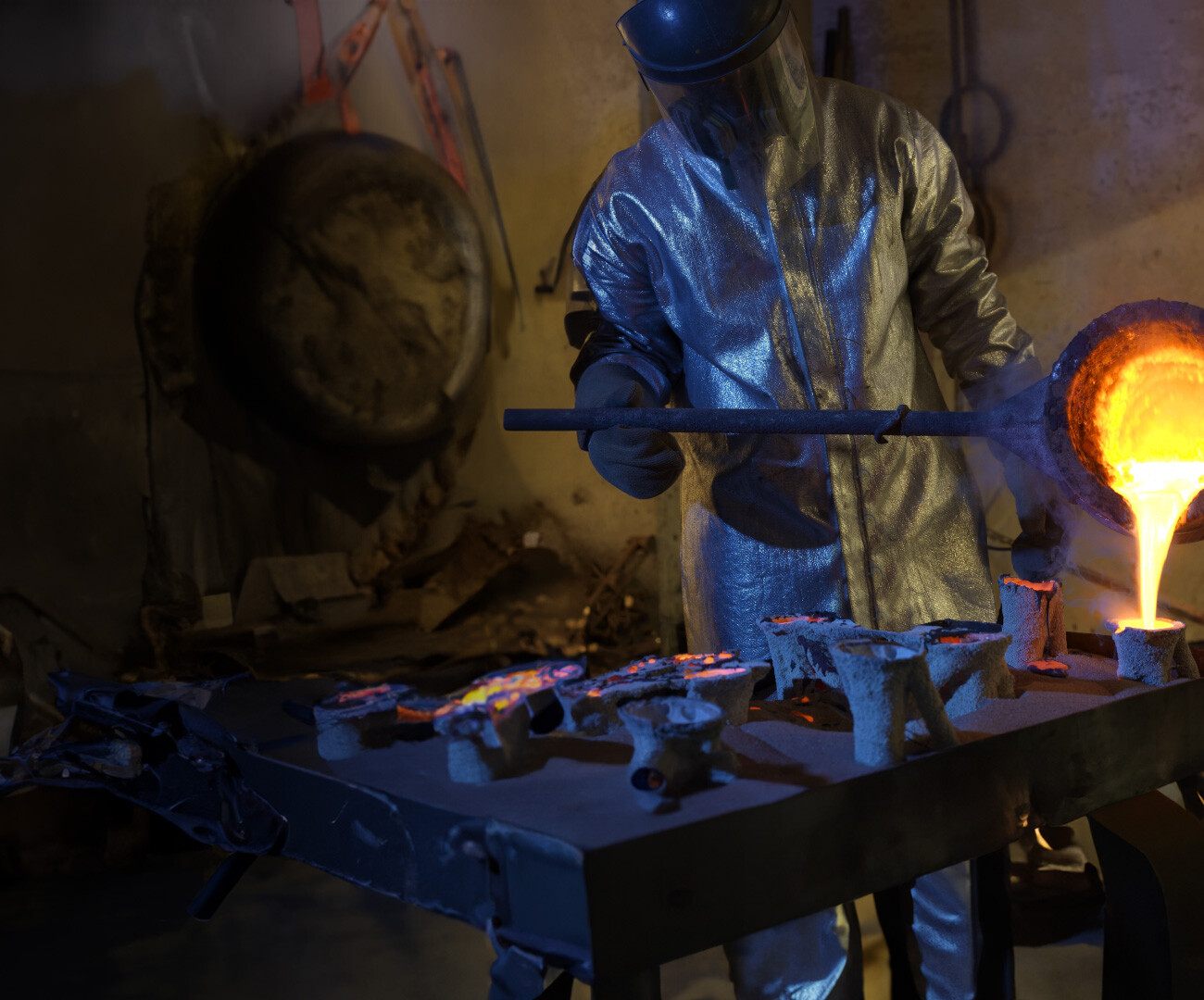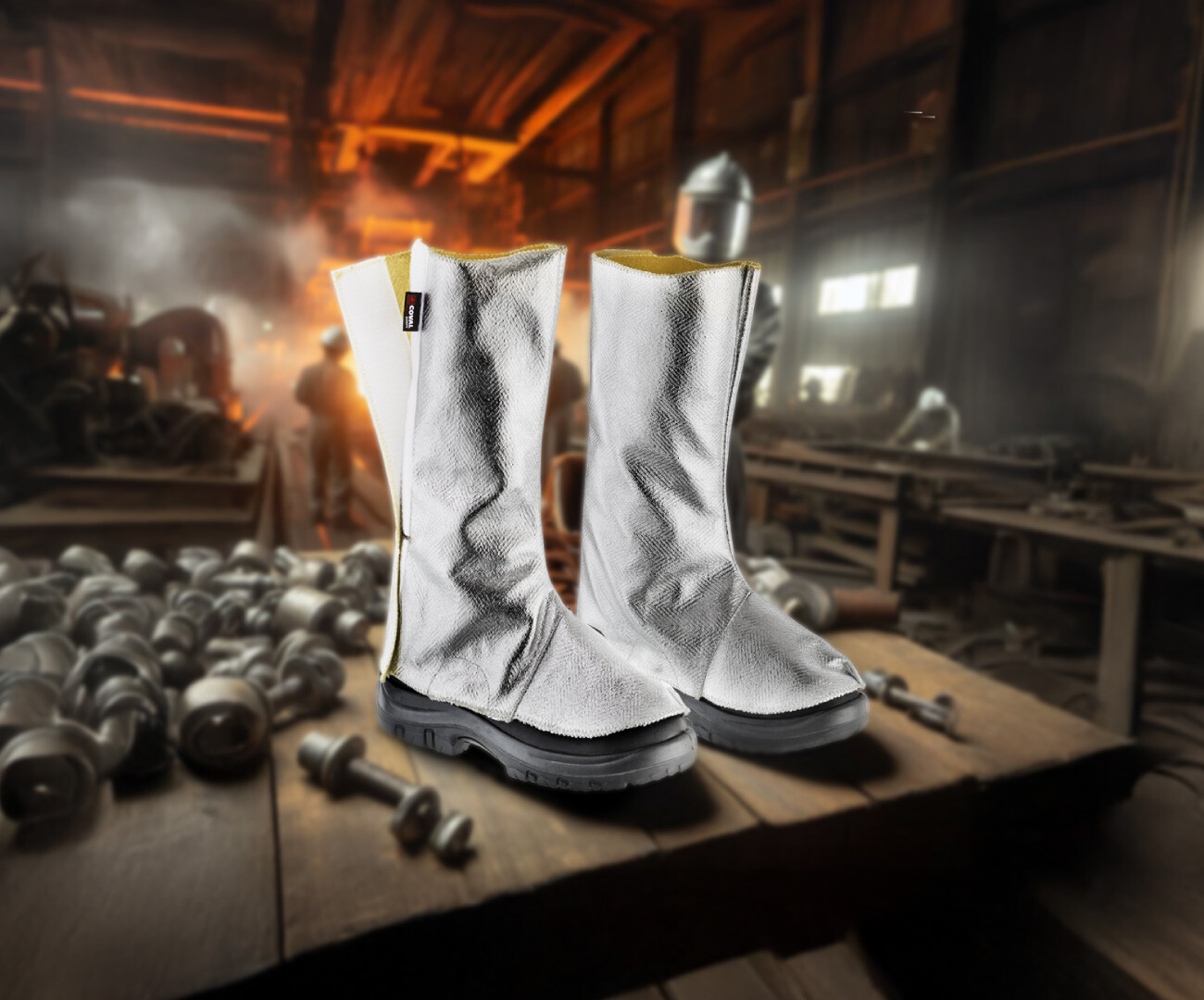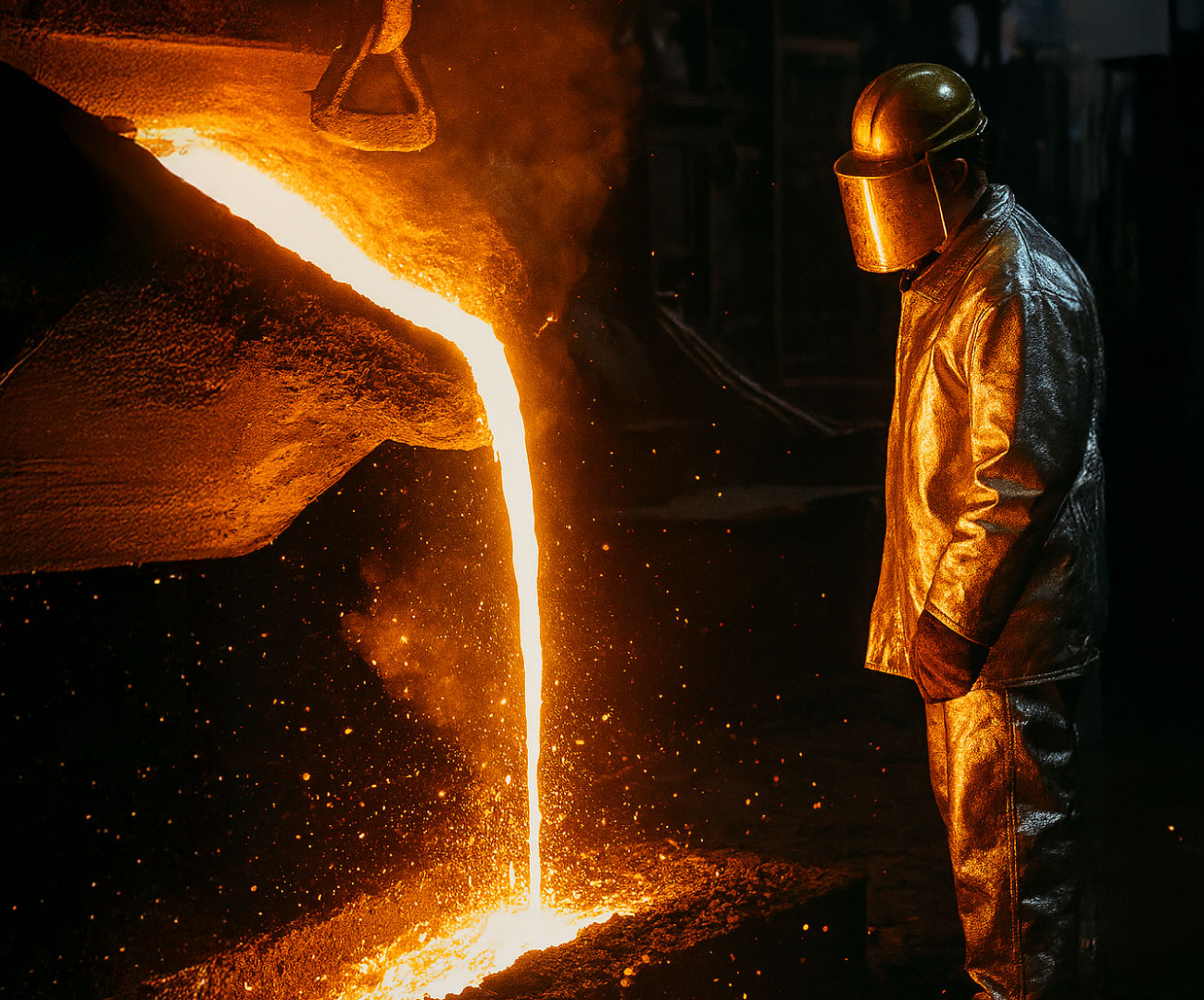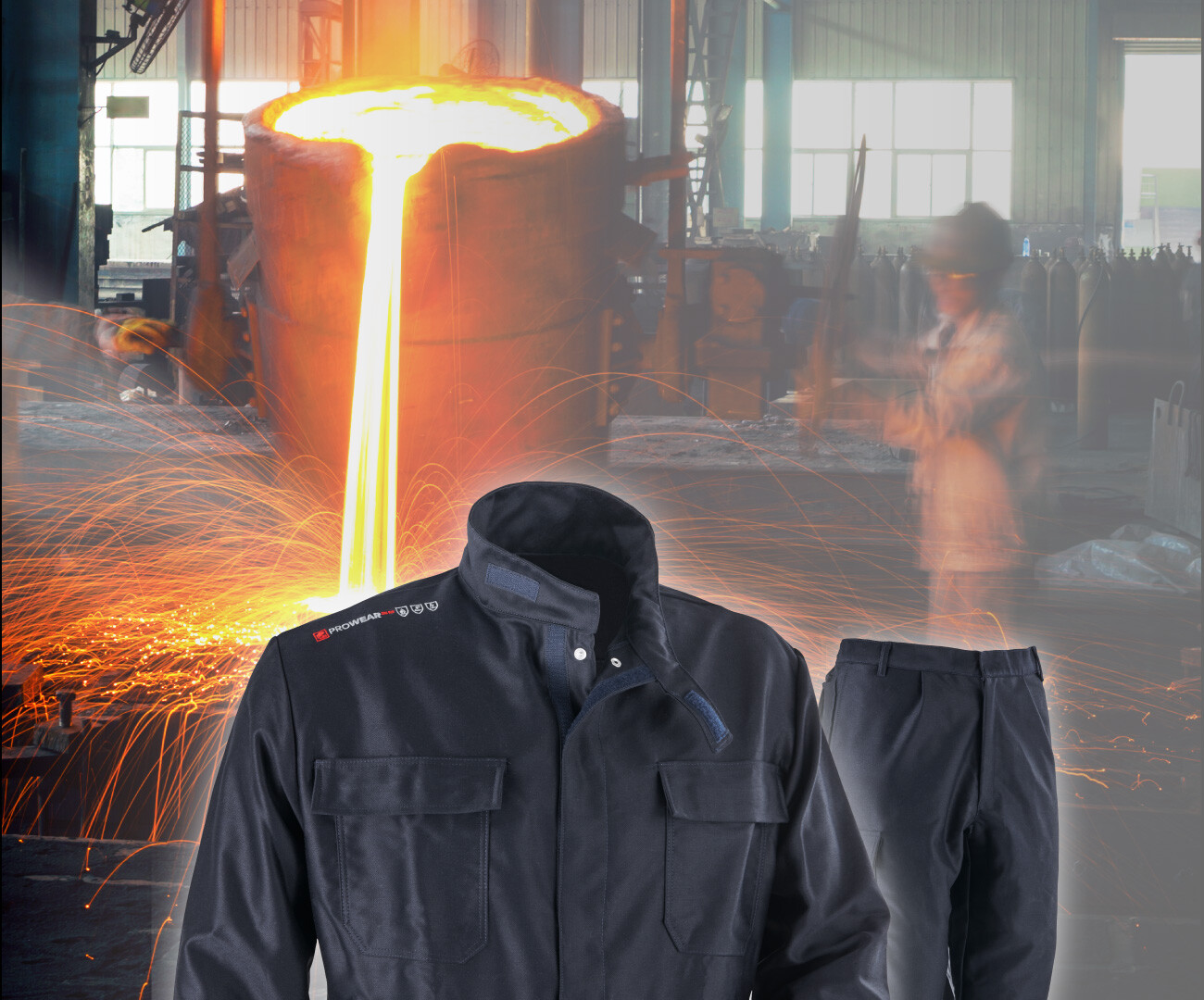Aluminised flame retardant coverall: when and why to wear it


When working in contact with open flames or the potential presence of flames, it is essential to wear workwear that offers a guarantee in protecting the worker from heat-related risks. This is precisely why it is important to know and choose the right fireproof clothing, i.e. made of non-flammable materials, in order to reduce the possibility of fabric combustion.
This type of fabric is made to withstand contact with very high temperatures, providing excellent protection from flames and slowing the burning time.
Characteristics of flame-retardant clothing
 We can divide fireproof clothing into two types depending on the material from which it is made:
We can divide fireproof clothing into two types depending on the material from which it is made:
1. Treated fabric, i.e. that has undergone a flame retardant treatment with FR (flame retardant) products with the aim of interrupting or at least reducing the combustion cycle. We can say that PPE created with this material has a sort of expiry date, hence a precise number of washes, which is indicated on the label.
2. Inherent fabric, i.e. that which does not undergo any kind of external treatment, as it is made from naturally fireproof fibres. In this case, the flame-retardant properties do not diminish, as they are inherent to the material, even after several washing cycles.
If you want to learn more about this topic, read our dedicated blog.
Types of flame-resistant clothing
 Fire retardant clothing can be of different types, with specific characteristics depending on the risks to which the operator may be subject, for example:
Fire retardant clothing can be of different types, with specific characteristics depending on the risks to which the operator may be subject, for example:
- Protective clothing against the limited spread of flame
- Protective clothing against heat: radiant, contact, etc.
- Protective clothing for welding
- Work clothing for firefighters
- Work clothing for forest fires
Each of these categories is regulated by specific standards that underline and protect their performance and that must be carefully followed when choosing the right personal protective equipment.
ISO 14116, for example, requires protective clothing to be made of non-flammable materials, or at least fabrics that stop burning once the heat source is removed. It ensures that the clothing in question will not contribute to spreading the flame.
ISO 11612, on the other hand, covers protective clothing against heat and flame. It specifies the minimum performance that protective clothing must have to be effective in industrial environments such as foundries or glassworks for example.
Find out more by clicking HERE.
Depending on the work environment and tasks, it is also important to choose the right clothing: there are jackets, trousers, coveralls, gloves and gaiters. And there are also safety shoes with flame retardant properties.
The choice of equipment must therefore be made according to the specific needs of the worker, always in accordance with a risk assessment carried out by an RSPP.
The Coval Safety aluminised fire-resistant coverall: a must-have PPE for foundry workers.
We have dedicated an entire line of aluminised PPE to protect users from the risks of flames and heat of various kinds.
One of these garments, essential especially in the foundry sector, is part of the HEAT family, namely the V6KA aramid fibre fire-resistant coverall.
This PPE offers excellent resistance from convective heat, but above all protects against radiant heat and molten metal splashes.
Designed with a convenient central Velcro and press stud opening, it is ideal for work in foundries, the glass industry and metalworking.
Knowing PPE and complying with regulations is the first step to protect yourself from countless risks at work.
If you want to learn more about this topic, you can read one of our articles in Safety Magazine. You can find it HERE.




